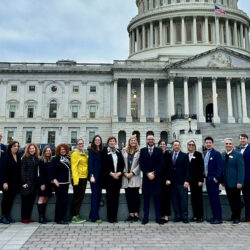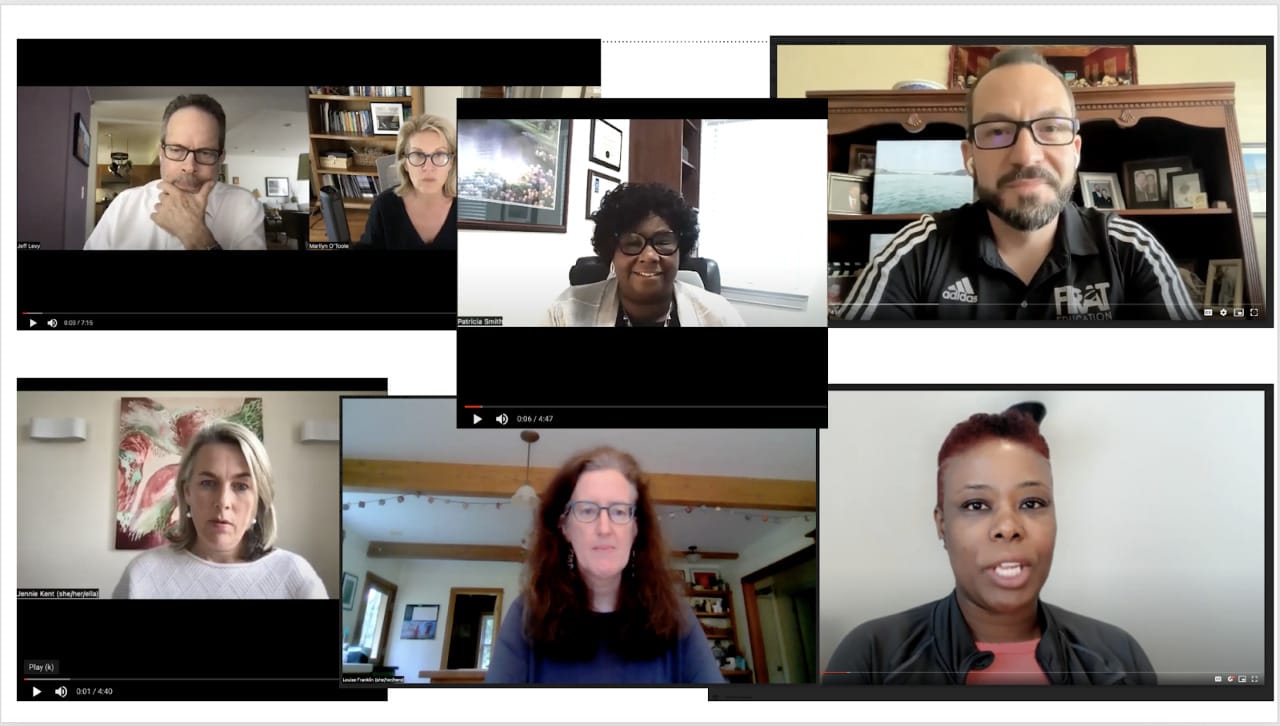On March 4-5, 2024, 15 IECA members descended on Capitol Hill for the second annual IECA DC Advocacy Day. We held 33 meetings with elected officials and their legislative aides from the US House of Representatives and Senate, introducing (or re-introducing) IECA to offices representing California, Colorado, Illinois, Louisiana, Maine, New Hampshire, New Jersey, New York, Pennsylvania, Texas, Virginia, and Vermont. The event kicked off with a meeting with Bernie Sander’s (VT) office, who is the chair of the Senate Committee on Health, Education, Labor, and Pensions (HELP).
DC Advocacy Chair Steven Mercer commented, “It was a great opportunity to learn more about the Understanding the True Cost of College Act and the College Transparency Act. Not many people get a chance to do this, as it’s rare for committee staff to meet with constituents. However, IECA has a close relationship with this committee since [CEO] Mark Sklarow was recently invited to give congressional testimony. This has allowed us to continue building close relationships with policymakers in Washington DC, which ultimately benefits the students, families we work with, and members of IECA.”
Whitney Bruce, Vice Chair of the Government Relations Committee, continued, “Our conversations in legislators’ offices were powerful and affirming. While we went there to advocate for issues that matter to us as we serve our clients, the power of the legislation we were discussing is in its benefit to those students and families who don’t have the benefit of our expertise.”
The purpose of Advocacy Day is to advocate for issues important to our profession and the students and families with whom we work. The issues we addressed this year included the following.
Introduction of IECA
We introduced IECA as the premier association within our profession, requiring our members to adhere to the highest standards of expertise and ethical integrity. We encouraged the offices to look to us for our expertise in education and adolescent development, and to partner with us in the development of legislation and policymaking to support and protect students and families in their educational journey.
Transparency in Higher Education
Understanding the True Cost of College Act. This act requires standard terminology and a universal format to assist students and their families, colleges and universities, and secondary school and postsecondary counselors to make informed decisions about the real cost of college and reverse the trend of taking on staggering student debt. Financial aid transparency is a step toward greater access and opportunity for all students.
College Transparency Act. This bipartisan bill ensures greater transparency regarding student outcomes at postsecondary institutions, providing information for evaluating which school to attend. The current system is overly burdensome; the new system will give students a clear understanding of their return on investment. The data will include information on student outcomes, including enrollment, graduation rates, and post-college earnings across colleges and majors.
We thanked those senators and congressmen who have already co-sponsored these bills and asked for support from those who have not done so.
Adolescent Mental Health
Given the adolescent mental health crisis, IECA supports legislation to address the following:
- Increasing the availability of mental health support for adolescents within and beyond school
- Providing critical oversight and standards for residential therapeutic schools and programs
- Ensuring parity of mental and physical health coverage by insurers
While there is currently no legislation facing Congress on these issues, we positioned ourselves as experts and asked for a “seat at the table” in the development of future legislation. We were joined by Kyle Matous, our new lobbyist from Advocacy Associates. As a previous Chief of Staff on the Hill, and most recently as the Director of Government Relations for Bono’s ONE Campaign, Matous is incredibly well-connected. Until our return next March, he will be our “boots on the ground” presence. He acknowledged that while we may not see any quick movement on the two transparency bills given the current state of Congress, the consistent emphasis on our issues is the best way to ensure change in the future.
“I got to meet the same staffer from Senator John Cornyn’s office that I met last year; she remembered my name, my title within IECA, and my business/location. We discussed the two bills and the adolescent mental health issues in much depth and how IECA can be involved in future legislation or hearings. It was like American Democracy 101 with my senator’s office. We positioned ourselves as the expert in the field of educational consulting, advocating for the students and families we serve, as well as the interest of those who do not have access to our services.” —Ibrahim Firat, President, IECA
Actions You Can Take
As an IECA member, you may ask, “What can I do?” We encourage you to write to your elected representatives and ask them to co-sponsor the Understanding the True Cost of College Act (H.R. 1198, S. 528) and the College Transparency Act (H.R. 2957, S. 1349), both of which are bipartisan and bicameral. And according to Mark Sklarow, “Next year, we will have new tools built into our website that will facilitate direct communication between IECA members and their elected representatives.”
A huge thank you to Steven Mercer, Chair of the DC Advocacy Day Committee, and committee members Cheryl Chamberlain and Jeana Kawamura, for planning this event, which was filled with great conversation with congressional staff about our important work as champions for our students and their families.
By Linda Daley, 2023-2024 Chair, IECA Government Relations Committee







